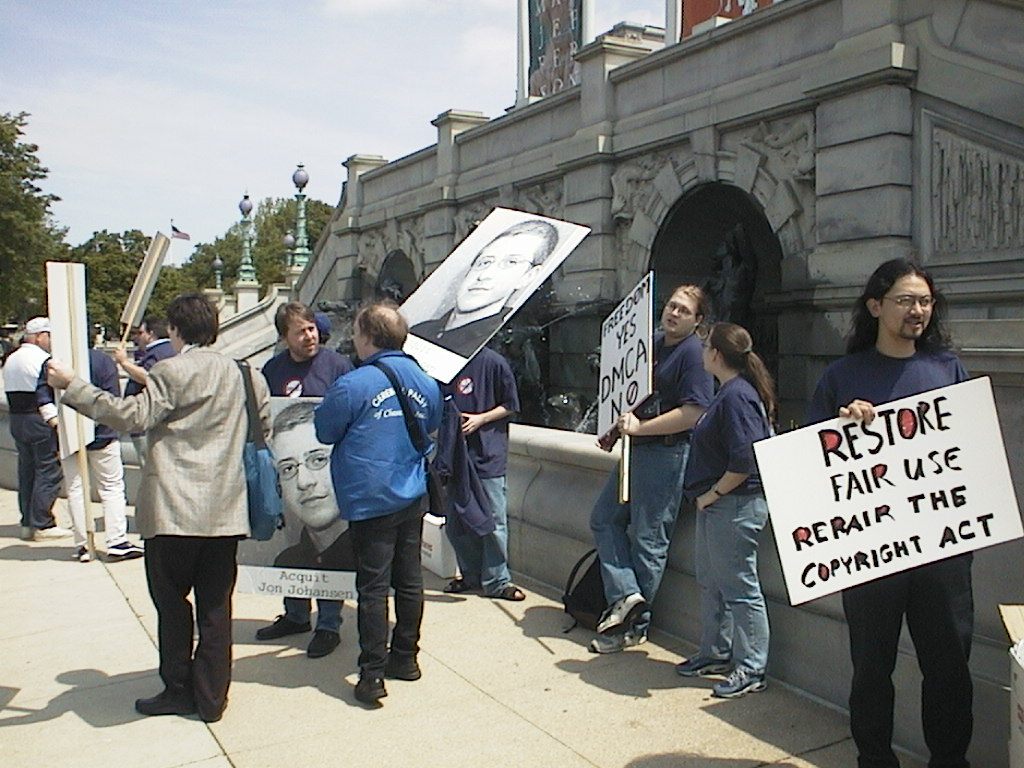
NYLUG.org Protests the Digital Millennium Copyright Act in Washington DC (with pics)
May 2, 2000
On May 2nd,2000, NYLUG joined with LUGs from Washington, DC and Northern Virginia to protest outside the Library of Congress. Inside, the U.S. Copyright Office heard testimony before implementing the "anti-circumvention" clauses of the Digital Millennium Coypright Act (DMCA).
About twenty protesters, including open-source luminary Eric Raymond, picketed and leafleted on the steps in front of the Nation's Library, handing out free anti-DMCA T-shirts and flyers to passers-by. Members of local, national, and foreign media were also on hand. After a rainy morning, protesters were blessed with excellent weather and a largely-receptive public.
While the right at issue, fair use, is little known to the general public, it is of fundamental importance to all open-source OS users. The rules in question threaten to gut fair use rights, prohibiting legal open-source playing of Digital Versatile Disks (DVDs) encrypted with the Content Scramble System (CSS) imposed by the entertainment industry.
The seriousness with which the entertainment industry is pushing CSS restrictions was driven home earlier this year by aggressive enforcement actions carried out at its behest. In January, Norwegian police arrested and questioned Norwegian teenager Jon Johansen for publishing CSS-defeating code on his Web page. In the same month, a New York court slapped an injunction on 2600 Magazine for linking to sites which contained De-CSS code. Demonstrators carried picket signs demanding Johansen's acquittal and the restoration of Fair Use as a first principle of American copyright law. "Any US law," said Raymond, "that abolishes consumers' fair use rights and leads to 16-year-old kids getting hassled by foreign police is just wrong. This has got to end."
Copyright-holding corporations, notable among them the Motion Picture Association of America, submitted statements favoring a strict anti-decryption, pro-usage-control interpretation. They were met with opposing testimony not only from open-source software users and the Association for Computing Machinery, but also from librarians, researchers, and museums. The Library of Congress's own staff submitted a statement against usage-restriction technology as a threat to their ability to maintain and preserve their collection.
If the MPAA prevails, the rules of ownership and use will be inexorably slanted away from legitimate users and towards the corporations which would control the CSS algorithm. Buying a DVD, for example, would not provide you with the right to play it, only a with a license to play it on terms agreeable to the copyright holder. Usage-restriction systems would put encrypted works forever off-limits to open-source computers, which would be classified as "illegal circumvention" technology.
And in doing this, the MPAA would not only subvert fair use, but would also gain effective control over an entire channel of distribution: independent filmmakers, for example, could be shut out of the DVD market unless they agreed to submit to terms dictated by the major studios that hold the keys to CSS licensing.
Throughout the debate, the MPAA has maintained that CSS is necessary to prevent illegal copying of movies. "They're banging the drum on piracy," said NYLUG President Jim Gleason, "yet there hasn't been a single instance of DVD piracy. They have a reason to be worried about piracy. But when you think about it, they've been though this already with audio and with Betamax and VHS."
"I'm hoping," Gleason said, "that one of the outcomes will be a dialog. I hope that the legislators will seek out new information . Clearly, the Motion Picture industry needs something to prevent widespread copying, clearly you need to preserve fair use."
In terms of generating awareness, the protest did have reach far beyond the Library of Congress's front steps. As of the writing of this article, media coverage included pieces in the London Register, The 451, and Linux Journal. A Wall Street Journal reporter was on hand, and Gleason had received calls from The Nation. Nonetheless, in a city where money talks, the road ahead is by no means clear. "I don't have any illusions--this is really going to be a long fight," Gleason said. "Why? Because the motion picture industry makes so much money. Say they spend a million dollars on their lobby effort...we don't have that kind of money. We have people and time. It's actually similar to Open Source itself. Open Source has no money. it has people and time, and look at the power and the momentum it's built."
The Copyright Office will hold further hearings on the Anticircumvention Clause on May 18th and 19th at Stanford University.
 |
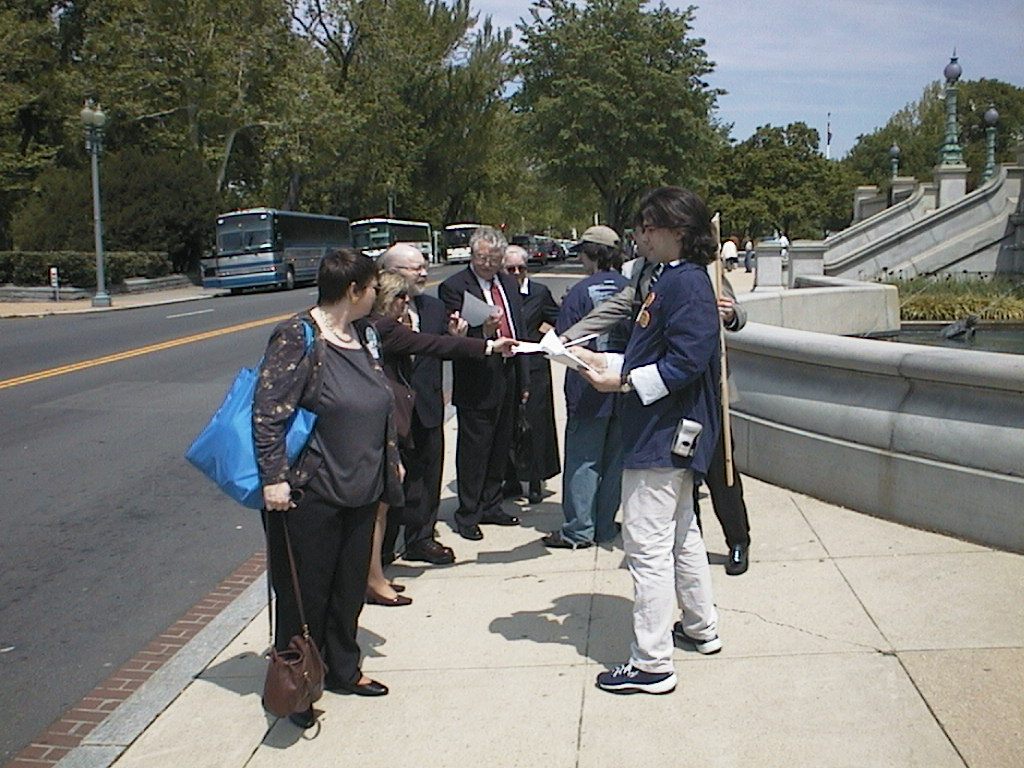 |
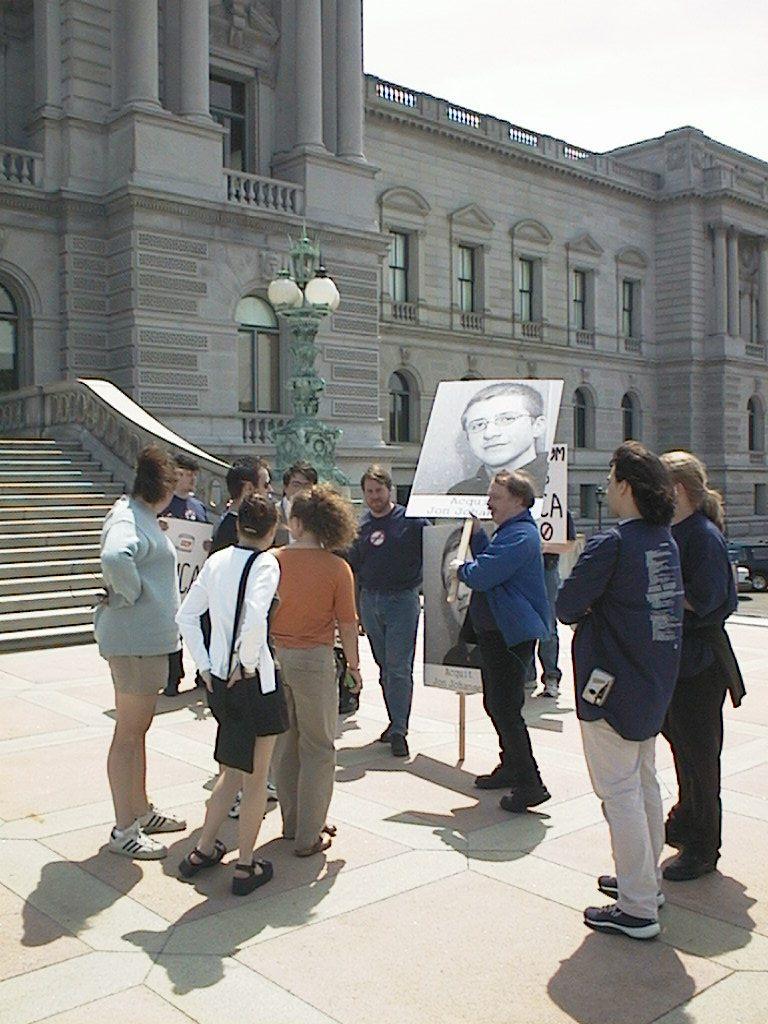 |
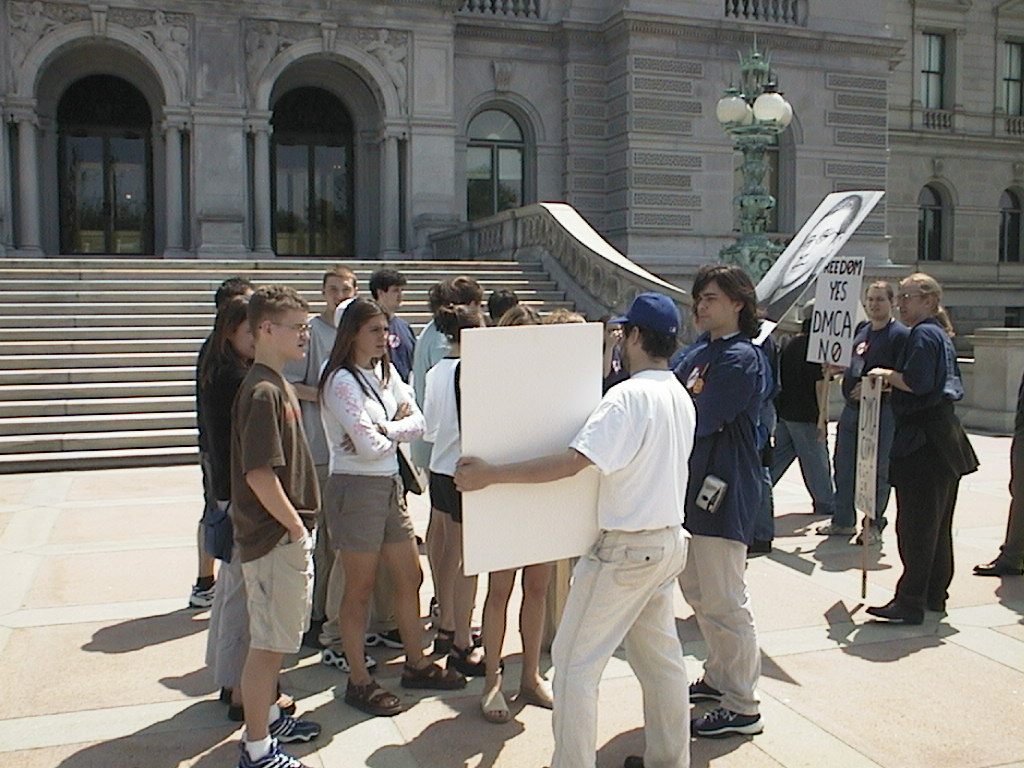 |
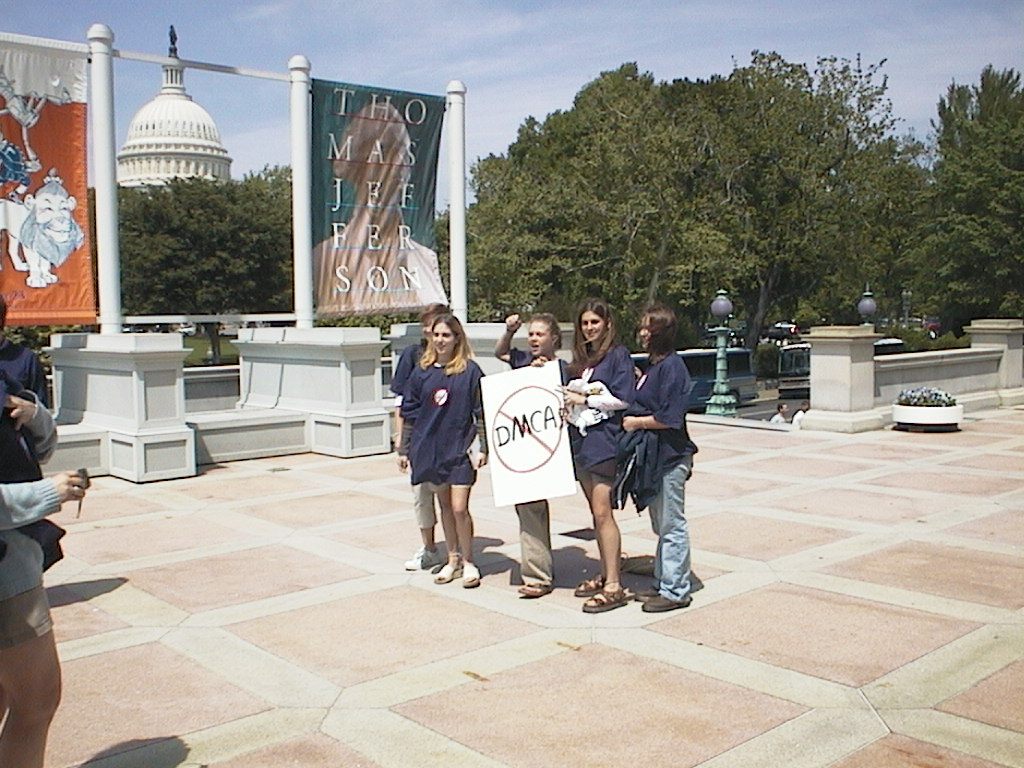 |
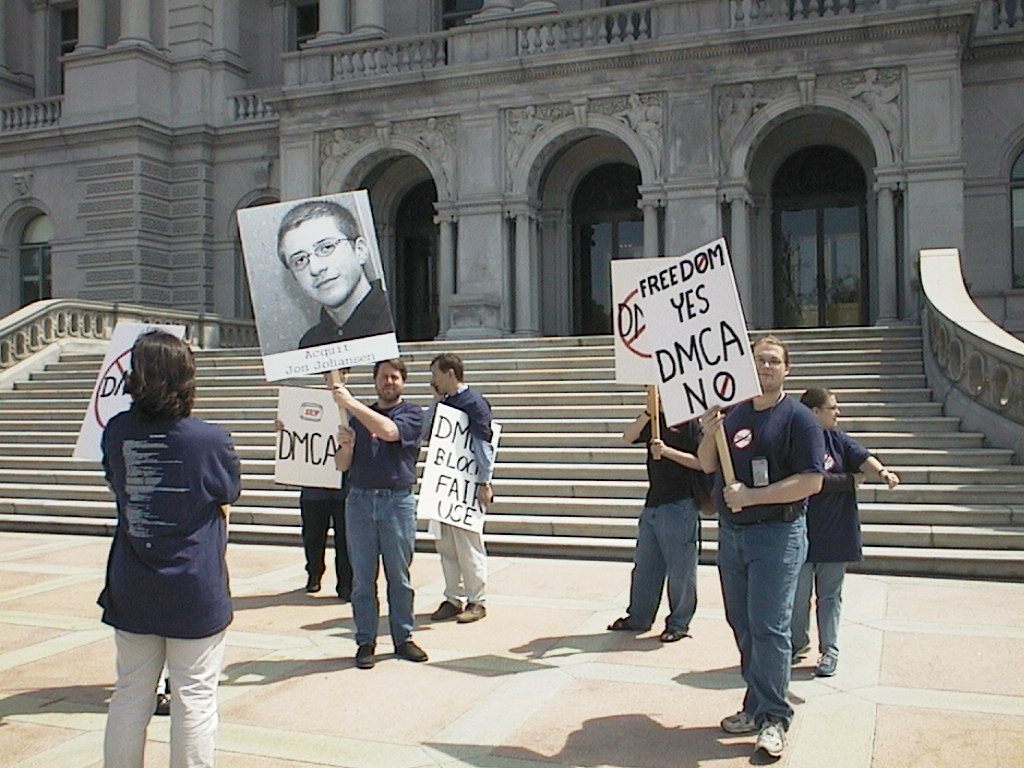 |
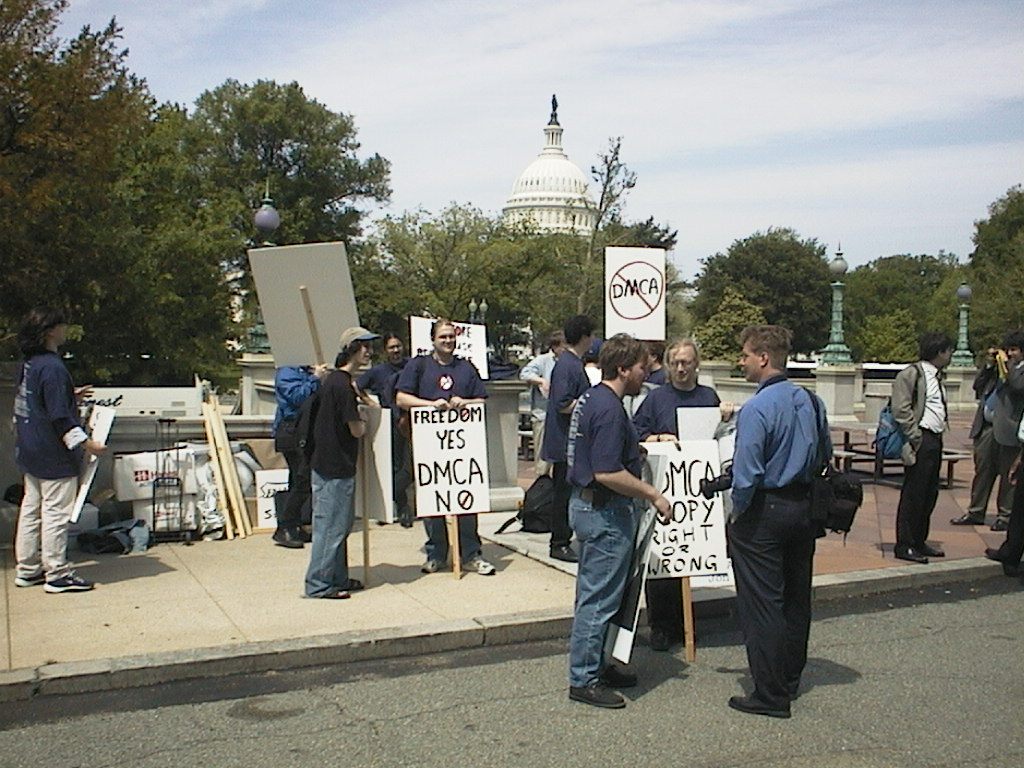 |
- William Abernathy
Copyright 2000 http://www.nylug.org/articles/index.shtml?washdvdprotest